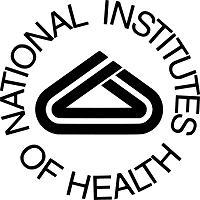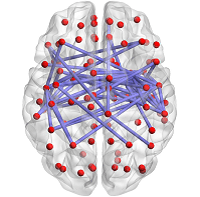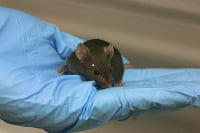
NIH MedlinePlus Magazine Website Now Fully Available in Spanish
May 1, 2019
NIH has launched a new website for its MedlinePlus magazine offering content in English and Spanish. The site is fully bilingual, allowing users to search for magazine content by health topic or by quarterly print issue. Content includes articles, interviews, news stories and videos on a range of physical and mental health topics. To learn more, please visit the MedlinePlus website.

Brain Imaging Studies Show Links Between Immune System and Emotional Regulation
May 1, 2019
In recent years, studies have helped us understand much more about the way the immune system and the brain signal to each other and how these patterns can cause physical and behavioral health problems. Two new studies show that individuals with higher levels of inflammation have lower levels of connectivity in areas of the brain involved in emotional regulation and executive function. This suggests that immune stress can predispose a person to emotional difficulties, drug use and other risky behaviors. To learn more about this study, please visit the NIDA website.

Crisis and Suicide Prevention Services Struggle with Demand After Celebrity Death by Suicide
April 30, 2019
The day after Robin Williams’ death by suicide in 2014, the National Suicide Prevention Lifeline experienced a 300% increase in the number of individuals seeking help and information. Tragically, an above-average number of individuals died by suicide in the next 30 days—many using the same method as Williams. A new report highlights the need for suicide prevention hotlines to allocate funding and develop contingency plans in the event of highly-publicized suicide deaths. To learn more, please visit the NIMH website.

Mouse Models Show Evidence for Ketamine as a Long-Lasting Antidepressant
April 11, 2019
Researchers have previously shown that ketamine is effective for immediate, short-term treatment of suicidal ideation and symptoms of depression. A new study in mice shows that ketamine causes physical changes in brain cells, potentially supporting sustained remission. Mice who exhibit depressive behavior experience rapid loss of “dendritic spines”—parts of brain cells that are necessary for chemical signaling. When treated with ketamine, the mice showed improvements in behavior within three hours and regrowth of dendritic spines within 24 hours. These findings bring us closer to understanding what lasting remission of depression in humans may look like. To learn more, please visit the NIMH website.

New Resources: Complementary Health Approaches for Children and Teens
March 21, 2019
The use of complementary health practices and products by children and teens has significantly increased in recent years. Yoga, meditation and the use of natural products like fish oil, melatonin and probiotics may be prescribed or self-selected for common conditions such as anxiety or stress, ADHD and insomnia. The National Center for Complementary and Integrative Health (NCCIH), a division of the National Institutes of Health, has created a new resource page for parents and youth interested in complementary health practices. To learn more, please visit the NCCIH website.

First-Ever Drug for Postpartum Depression Approved Thirty Years After Groundbreaking Discovery
March 19, 2019
Approximately 1 in 9 women in the United States experiences symptoms of postpartum depression (PPD). Fortunately, research uncovered the biological causes of PPD and lead to the development of a specific treatment. As one part of a major research project funded by the National Institute of Mental Health in the 1980s, researchers discovered that the hormone metabolite allopregnanolone interacts with the neurotransmitter GABA to trigger the symptoms of PPD. After years of further study and clinical trials, the FDA has approved Zulresso (brexanolone), the first-ever drug to specifically treat postpartum depression. To learn more, please visit the NIMH website.

NIH Announce New Long-Term Study on Child Brain Development, Substance Use, and Stress
March 11, 2019
The National Institutes of Health has announced a new long-term study to improve our understanding of the impacts of early exposure to opioids and other substances, environmental toxins, and social stress during fetal development and early childhood. The HEALthy Brain and Childhood Development (HBCD) Study, lead by the National Institute on Drug Abuse (NIDA), is part of NIH’s HEAL (Helping to End Addiction Long-Term) Initiative. This ambitious research will help us create detailed baseline standards for healthy brain development in early childhood. To learn more, please visit the NIDA website.

FDA Approves Esketamine Nasal Spray for Treatment-Resistant Depression
March 5, 2019
Individuals with major depressive disorder who struggle to manage their symptoms despite trying multiple antidepressant treatments over a long period of time may have treatment-resistant depression. The FDA has approved a new drug for this serious condition through the expedited Breakthrough Therapy designation process. Spravato (esketamine) is a nasal spray prescribed to be used together with an oral antidepressant and administered under the supervision of a health care provider. To learn more, please visit the FDA website.

Teen Suicide Deaths Decrease When Caregivers Receive Education and Support
February 28, 2019
Suicide is the second most common cause of death for people aged 10-24 in the US. Despite this significant and alarming public health issue, there have been very few successful intervention programs for high-risk teens. Encouragingly, a recently-published study shows that when the adults in a high-risk teen’s caregiving environment receive education and support, the risk of death by suicide is reduced by half. For more information about this study, please see this article from Vox.

VA Reports Mental Health Service Improvements Since Release of Joint Action Plan
February 25, 2019
In May 2018 the US Departments of Defense, Homeland Security and Veterans Affairs created a 16-point Joint Action Plan to improve the mental health resources for service members transitioning from active duty to civilian life. The VA now reports that 7 of the 16 points have been completed and early data is very encouraging. In one month, for example, one-third of the 8,000 service members who participated in the Transition Assistance Program registered early for VA health care. For more on this report, please visit the VA website.

